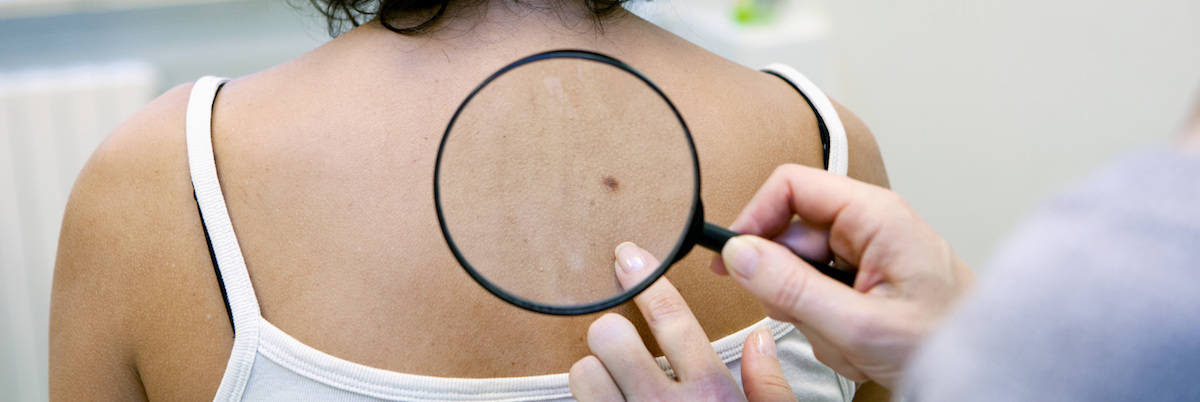One in five Americans will develop skin cancer by the age of 70, according to the Skin Cancer Foundation. Most people think only of Melanoma when they think of skin cancer, but there are actually many types of skin cancer – and not all of them appear as mole that has recently changed. Some skin cancers may appear as just a dry, scaly patch of skin and they may easily be dismissed as just an area of dry skin. Because skin cancers evolve slowly (and
may be difficult to notice at first), you should perform regular skin checks on yourself. By performing regular skin checks, you will be able to more easily notice any areas of concern or any spots that may be changing. Areas to watch out for include dry, scaly patches that do not go away, red or flesh-colored bumps, pink patches of skin, or a mole that is changing.
If you have an area that you believe is changing, but are not sure, take a photo with your camera and include a ruler or another reference item in the photo. This will provide you with a reference photo to compare to during your routine skin check. It is also a good idea to schedule an annual appointment with your dermatologist for a routine skin cancer screening. Your dermatologist can help you spot any skin changes that may need to be monitored. They will also measure any record any large moles or other areas of concern, so they can be more easily monitored in the future.
With regular self-skin checks and annual dermatologist appointments, your dermatologist will be able to spot any potential skin cancers before they progress to a point that make them more difficult to treat.
Please call The Dermatology Center of Indiana to schedule your annual skin cancer screening today or if you notice any areas of concern.
Disclaimer: This blog provides general information and discussion about medical, cosmetic, mohs, and surgical dermatology. The words and other content provided in this blog, and in any linked materials, are not intended and should not be construed as medical advice. If the reader or any other person has a medical concern, he or she should consult with an appropriately-licensed dermatologist or other health care worker.
